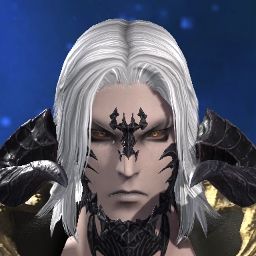Anyway, the enemy of my enemy is my mom or whatever. Support women's wrongs. Move on. The story has.
-
11-09-2023 09:17 PM #271Player
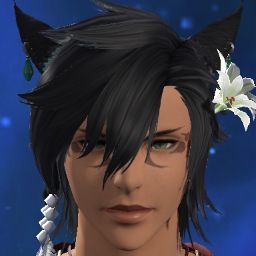
- Join Date
- Oct 2022
- Location
- Radz-at-Han
- Posts
- 422
- Character
- R'vhen Tia
- World
- Excalibur
- Main Class
- Dancer Lv 100
(5)
-
11-10-2023 12:58 AM #272Player
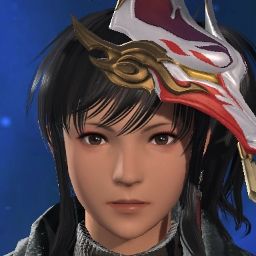
- Join Date
- Aug 2011
- Location
- Limsa Lominsa
- Posts
- 2,216
- Character
- Midi Ajihri
- World
- Hyperion
- Main Class
- Arcanist Lv 100
The first of the Sundered might’ve been reduced but they also had enough memory and coherence to make cave paintings of Amaurot as well as the actual Sundering with representations of Zodiark and Hydaelyn. I don’t think they were formless ghosts or drones for generations until people slowly reconstituted themselves like the End of Evangelion.
(5)
-
11-10-2023 02:22 AM #273
FFXIV's own writers wrote that stuff for the crossover event. We can't attribute it to Shadowbringers shenanigans either, as the Re[in]carnation side of their deal was implemented well into Endwalker's lifespan. For my part, I think they should've either left that bit out entirely or put it in the main game. Forcing people play the NieR gacha to get lore for this game was kinda scummy.
As for the cave paintings; one wouldn't need to have their previous identities intact to recall those things. It may not even have been the first generation of sundered who made the paintings in the first place, merely people whose souls yet retained some deeply ingrained residual memories of those events and the major players therein. Even if it were, I'm afraid scrawling some half-remembered things on a cave wall isn't indicative of being remotely intact. Even chimpanzees have been known to produce primitive illustrations of things they found particularly horrifying or interesting. Not to say the sundered were as chimps, mind; merely that the ability to draw things is not limited to those of high intelligence or even complete sapience.(4)Last edited by Absimiliard; 11-10-2023 at 02:32 AM.
-
11-10-2023 04:30 AM #274Player
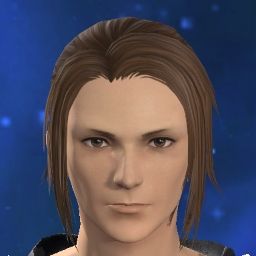
- Join Date
- Aug 2012
- Location
- Limsa Lominsa
- Posts
- 439
- Character
- Alenore Llohen
- World
- Excalibur
- Main Class
- Lancer Lv 100
I don't think their point was that they were intact, but that sundered people weren't broken to a point they couldn't form coherent thoughts.
The fact Emet couldn't understand them would imply the Echo wasn't working, but on the other end, they would have lost their memories after their deaths.
I see a few possible explanations:
- The cutscene is wrong and Emet-Selch meant they couldn't form words but still understood them with the echo ;
- There was a time of adaptation where the sundered people were so disoriented they couldn't form coherent thoughts ;
- These memories took a few rebirth to be cleansed, somehow ;
- Zenos isn't the only one who dreams of the Final Days, perhaps it was more common back then.
Pure conjecture though,(3)
-
11-10-2023 06:56 AM #275
I can see where your interpretation might come from. However, the rest is a fair bit less vague. It makes clears some of the things lost in the sundering. The loss of culture and knowledge implies an incredible level of corporeal and spiritual damage, as does the loss of language as a whole. These are things intrinsically tied not only to civilizations but to individuals. To lose one or any of them is to lose an integral piece of oneself, and to lose them all is to be lost in turn.


To note, all of these little cutscenes are accompanied by narration from a neutral party. NieR does not make use of the unreliable narrator method.
As to the Echo not working; that appears to be correct, although it is important to note this would not be a problem on the Unsundered's part. Failure to communicate would instead have to come from the early sundered being so utterly ruined as to render even communication via the soul an impossibility.(5)Last edited by Absimiliard; 11-10-2023 at 07:06 AM.
-
11-10-2023 09:58 AM #276Player
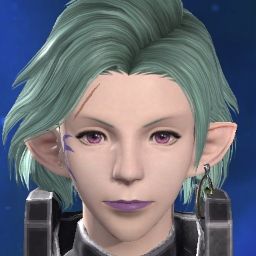
- Join Date
- Sep 2021
- Location
- Solution Eight (it's not as good)
- Posts
- 3,030
- Character
- Ein Dose
- World
- Mateus
- Main Class
- Alchemist Lv 100
...yes it does. Yoko Taro games in general do that a lot, to the point where even the raids he wrote for FFXIV do it at least twice; I'd say unreliable narration might be the main hallmark of his storytelling style through the years. Automata might even be the worst about it, one of the most common plot beats in Automata is 'learning someone lied to us both as characters and people'. Perhaps one of the big turns of the back end of Automata is when we finally get to play as a character that's being honest to both us and themselves.
I haven't played Reincarnation (if you have that would be a wonderful asset to bring to the table here), but from what I've been told and learned about Mama, she's... well, also a liar, albeit mainly in the context of the actual story of the game. When it comes to the context of the collab--basically, a story she tells--is that she's flowery, but detached: she'll big up this story, but it's ultimately second-hand, from a person who cares more about dramatics than veracity. Basically, it's someone telling us Emet's story, as told by Emet... which is how we got it in the first place. So it contains no new information, and anything that appears new could easily be explained as Mama Being Fancy.(7)Last edited by Cleretic; 11-10-2023 at 10:05 AM.
-
11-10-2023 10:28 AM #277Player

- Join Date
- Aug 2011
- Location
- Limsa Lominsa
- Posts
- 2,216
- Character
- Midi Ajihri
- World
- Hyperion
- Main Class
- Arcanist Lv 100
From FFXIV, the actual game where all this is relevant:
 Originally Posted by Minifilia
I took from this that the people sundered had definitely lost part of themselves, but they still had "fragments and fleeting memories". They felt like they were missing something and painted it onto the walls. Nothing in Emet-Selch's speech here in the game suggests that immediately following the Sundering, people were blobs who couldn't speak.
Originally Posted by Minifilia
I took from this that the people sundered had definitely lost part of themselves, but they still had "fragments and fleeting memories". They felt like they were missing something and painted it onto the walls. Nothing in Emet-Selch's speech here in the game suggests that immediately following the Sundering, people were blobs who couldn't speak. Originally Posted by Emet-Selch
Originally Posted by Emet-Selch
You also have to remember that Emet-Selch also refuses to recognize the sundered as actual people and he uses the same "malformed creatures" line in regards to his own grandson. Part of the Echo is being able to connect your soul to the wavelength of another, which I would find difficult if you don't view the other side as human.
From a meta standpoint, the dialogue from NieR may have been written by FFXIV's writers, but I don't think it was necessarily written for FFXIV's audience and meant to be a complete 1:1 retelling of events. Unless one of them outright says that the NieR mobile game overwrites Shadowbringers, I'd hesitate to consider anything that pops up in another game as pure and completely accurate canon. Especially since it appears to have just been a 2-panel blurb to inform players of a different game the context for a crossover event of something they're maybe unfamiliar with.(4)Last edited by MikkoAkure; 11-10-2023 at 10:32 AM.
-
11-10-2023 11:20 AM #278
I have indeed had the misfortune of playing NieR Re[in]carnation. It's... aight, yeah, I'mma just be real; it's not great. I really only took it up because I had a feeling they'd shove some lore over there. And sure enough, they did.
I suspect I wasn't clear enough in my assertion regarding NieR Re[in]carnation's lack of the unreliable narrator trope. Allow me to elaborate briefly. Being the type of game it is, there's a lot more telling than there is show. You'll have instances where the narration hams it up, but the game is always very clear on what is actual narration of events versus what is not. You've been correctly informed regarding Mama's predilection for deception within the context of the game's main story, but the same is not true when she is serving purely as a narrator. Flowery words and dramatics are likewise for the most part absent from the crossover event's narration.
So here's the deal. For the most part you are correct in that it does introduce anything new, save one detail: the state of the sundered. As shown in the image above, there's really no mincing words. We get a brief example of what their attempts at communication were supposed to have been like, a line clearly meant to reflect Emet-Selch's feelings on what they'd become (i.e. malformed creatures), and finally a direct statement regarding the Sundering's immediate fallout for those affected by it. The entire crossover event is handled pretty much the same way. Things are kept consistent and clear, with easily recognized lines drawn between what is Emet-Selch's impression of something, what Emet-Selch is doing, and what simply is.
There's some extra stuff in the descriptions of some items, but none of it is of any real consequence. Mostly just neat little tidbits that have no real bearing on anything.
The crossover event contains several more panels. Those were simply the two most relevant to the topic at hand. Incidentally, the crossover actually came out several months into Endwalker's life.
Nothing in the game, to my knowledge anyway, indicates your view of a person (or a non-person, so long as they have a soul and serviceable intelligence) has anything to do with whether or not the Echo will work on them.
Cave paintings are quite old irl, the oldest we've found being something like 64,000 years I think? They suspect it was the work of a Neanderthal. Our ancestors and their cousins were by no means dumb for the eras in which they lived, but they possessed barely a fraction of the intellectual advancements we enjoy today. One can be of extremely primitive intelligence and still manage to convert the images in their head into art or hum a tune. Heck, even chimpanzees have demonstrated the capacity for drawing.
In any case, I do recall it being said in Shadowbringers the Sundering split all attributes of its victims, not just their physical and aetherial mass. To quote the EN localization, "strength, intelligence, the soul itself--all is halved." Getting all that split fourteen ways is awfully excessive, even for something as advanced as an ancient. How could they not be reduced to mere shells? Doesn't mean they would remain that way. They did rebuild with time. They invented new languages, came up with new forms of art, and even worked out types of magic they were capable of using. Having said this, the key word is time. Who is to say that cave painting was made by the original Sundered? Or even if it was, would that in any way diminish the suffering an event like the Sundering would inflict on those first created by it?
I suppose, to sum things up:
I'm not here to argue on behalf of NieR Re[in]carnation or what have you. I popped in to bring to light something which contains potentially relevant information for the topic at hand, which I believe supports the premise of the Sundering indeed being comparable to, if not in some ways worse than, death. To connect this back to the prior discussion which I seem to have unintentionally derailed: death of personality is death all the same, to many people. Having your body and soul disassembled and reconstituted as something new, even should it somehow wind up with your face or even fragments of your memories, does not mean that thing is you.
Death in Final Fantasy XIV means returning to the lifestream wherein your soul will either be cleansed and reincarnated or broken down into its constituent aether and be counted amongst the building blocks of a new soul. Either way, you're not you anymore. The cleansing process removes your memories, save those burned deep into your soul (as by the Final Days or Kairos). The dissolution process presumably just gets rid of you entirely, but they weren't really clear on how that works. It's just a thing that can happen.
The Sundering split people, physically and spiritually, into fourteen pieces. FFXIV itself tells us these fourteen shards retained little of anything save their residual memories of the Final Days and seemingly bits and pieces of information from the world before. In other words, the Sundered were new people. They were not a continuation of the ancients from which they were created. For practical purposes this is basically a trip to the lifestream with extra steps and some really nasty side effects.(4)Last edited by Absimiliard; 11-10-2023 at 12:25 PM.
-
11-10-2023 01:05 PM #279Player

- Join Date
- Sep 2021
- Location
- Solution Eight (it's not as good)
- Posts
- 3,030
- Character
- Ein Dose
- World
- Mateus
- Main Class
- Alchemist Lv 100
Yeah, none of that reads to me as a reliable piece of intel, because it's being told through the lenses of two different characters who are, to be brief, massive drama queens. Not only that, but both Nier and FFXIV are happy to twist and accentuate representation even to the point of hiding factual truths for the sake of underlining emotional truths; my favorite example there is the Tsukuyomi fight, but it's also been used in the Ancients' story through way of Venat's post-Elpis scene.
Basically, I don't see that story as having new facts: I see it as having new embellishments.
Now, the interesting thing that one could bring up here was the Twelve. We get their story several degrees removed from that origin point as well, but there are new factual pieces to that 'immediate post-sundering' time, if that's what you care about: namely, the Twelve's yokes. These were things that needed overseeing in the immediate wake of the sundering; therefore, not only can we take as a given that concepts like glaciers, the tides, and time existed, but that they were at that point shaky enough to need some guiding hands to make sure things didn't fall apart. Most of those yokes are largely focused on natural or abstract phenomena, although they all have elements relating to man in some way, but most interesting to me is Byregot: construction and 'fortifying the works of man' only make sense if people are actually building things, which suggests to me an element of stability and advancement that isn't there in Emet's retelling. (And of course, that element's not there in Emet's retelling because he doesn't really care; both his and Mama's retellings of it focus on his emotional pain, and his feelings don't care if they're building things.)(6)
-
11-10-2023 01:46 PM #280
Once again, Mama's drama queen tendencies only show through when she is actively taking part in the story. Instances of her acting solely as a narrator, of which there are several, see those elements completely removed. Additionally, the FFXIV crossover is, and I stress this, not part of NieR Re[in]carnation's storyline. It's simply a thing that is there in some form, and while presumably also canon to that world (as the NieR raids were on FFXIV's end, per the terms both teams agreed to), it's not something relevant to game's overarching plot at all. It's also not really being told from Emet-Selch's point of view. He is the character upon which the story focuses, but he plays no part in its actual telling outside of being one of several "actors" involved. That was kinda their intention with the crossover - it was to be his story, not necessarily that of the ancients. Not a story he participates in telling, but the story of his part in things. The crossover announcement and promotional materials corroborate.
It stands to reason those things, which were part of the world prior to its division, would remain in some form afterward. I'd have been more surprised to learn they were for some odd reason absent. I do find it logical they were unstable enough to require supervision immediately following the Sundering. Perhaps less so time since it's something of a universal constant (gravitational influences notwithstanding, of course), but I suppose that comes with the territory when you divide something into fourteen separate yet connected dimensions. It tracks that a blatantly unnatural event would have equally unnatural consequences.
I'm not seeing the conflict here. We've ample reason to believe the sundered were in extremely poor condition immediately post-sundering, but that doesn't mean they would remain as such forever.
So if you consider the crossover event of no count, what do you consider acceptable sources other than FFXIV itself?(4)Last edited by Absimiliard; 11-10-2023 at 01:56 PM.



 Reply With Quote
Reply With Quote
